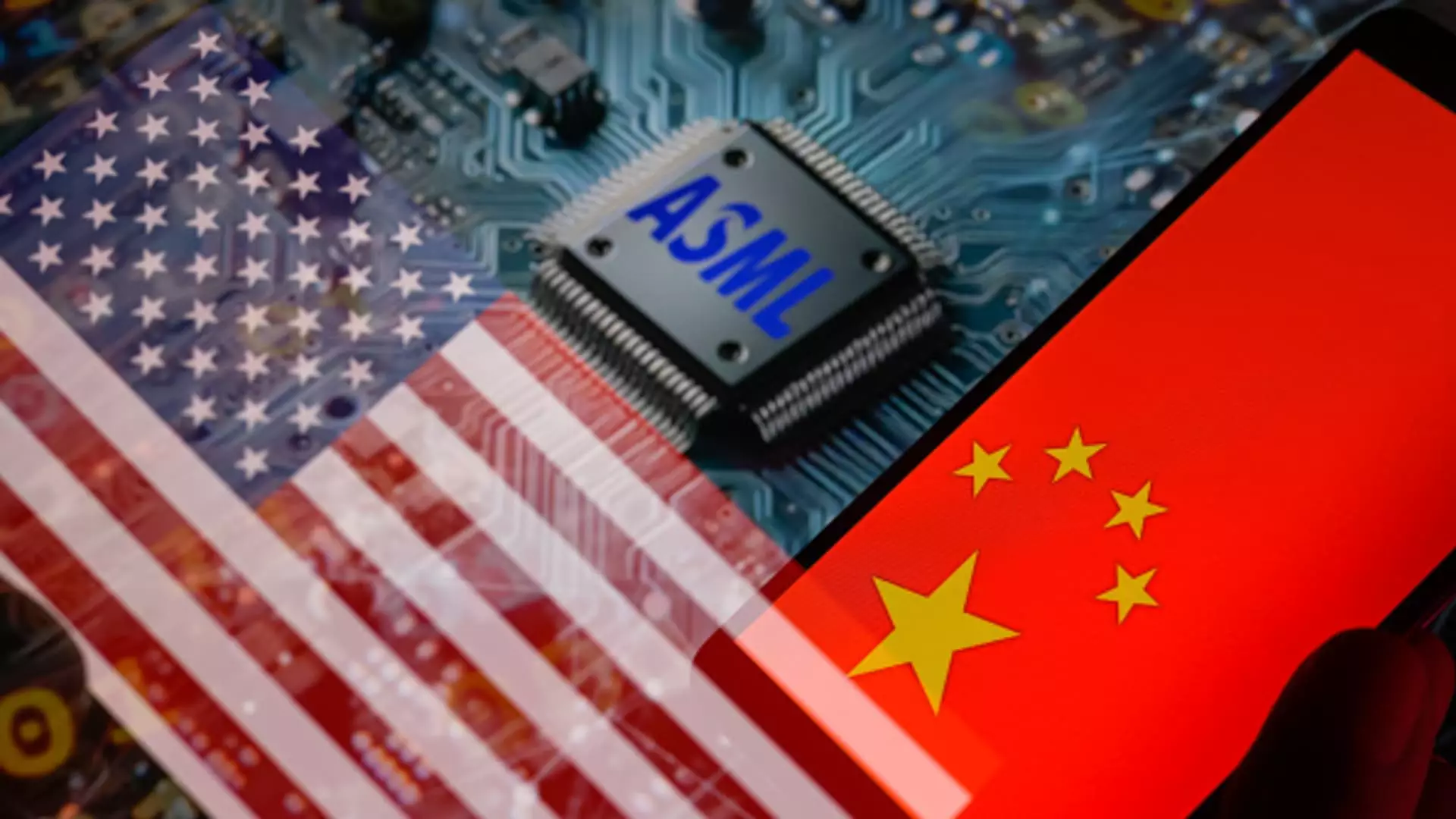On Thursday, a notable rally in share prices of leading global semiconductor equipment manufacturers occurred. This surge came in light of a Bloomberg report suggesting that the U.S. government is contemplating a new set of export sanctions targeting China’s semiconductor industry, albeit not as stringent as initial proposals. ASML, a Dutch company critical to the semiconductor supply chain, saw its stock spike by approximately 3.6% during early trading in Europe. Similarly, in Japan, Tokyo Electron’s shares climbed over 6%, reflecting investor optimism amidst ongoing geopolitical tensions.
The crux of the Buzz revolves around Washington’s potential measures aimed at imposing restrictions on the sale of semiconductor manufacturing equipment and artificial intelligence (AI) memory chips to China. However, the forthcoming regulations are projected to be less severe than previous iterations. This nuanced approach indicates a strategic recalibration on the part of U.S. officials, aiming to balance national security interests with the realities of global trade dynamics and impact on domestic companies.
Significantly, the U.S. Commerce Department is also weighing the prospect of adding fewer companies to its restrictive Entity List, which could alter the landscape of U.S.-China technology interactions. One notable company reportedly exempt from these restrictions is ChangXin Memory Technologies, a competitor to renowned semiconductor giants such as SK Hynix and Samsung. Analysts from Jefferies have pointed out that this exclusion could lead to a smaller-than-expected revenue decline for ASML in the coming fiscal year, which was originally forecasted at 30%.
ASML’s pivotal role in the semiconductor production process underscores its importance in the global tech ecosystem. The firm is renowned for manufacturing the lithography machines essential for producing advanced chips. These machines are key assets utilized by major chip manufacturing facilities worldwide, including Taiwan Semiconductor Manufacturing Company (TSMC) and China’s Semiconductor Manufacturing International Corporation (SMIC).
However, ASML’s trajectory has not been without its challenges. Various export controls have hampered its ability to ship advanced machinery to China, and recent regulatory measures have only escalated the difficulties in exporting even less advanced lithography equipment. This precarious situation means any policy targeting technology manufacturers, particularly those engaged in semiconductor production, poses inherent risks for ASML and its cohort of international competitors.
The implications of these developments extend beyond ASML and its competitors. The semiconductor industry is integral to the technological advancements shaping the modern economy. As nations vie for technological supremacy, these regulatory shifts not only influence stock prices but also dictate strategic decisions among global manufacturers, shaping the future landscape of the industry.
Investors and stakeholders are urged to closely monitor these unfolding dynamics, as adjustments in U.S. policy could foster a more competitive environment or, conversely, lead to greater isolation for Chinese firms. While the latest developments in U.S.-China relations bring optimism to semiconductor equipment stocks, they also underscore the complexities and uncertainties inherent in this critical sector.

